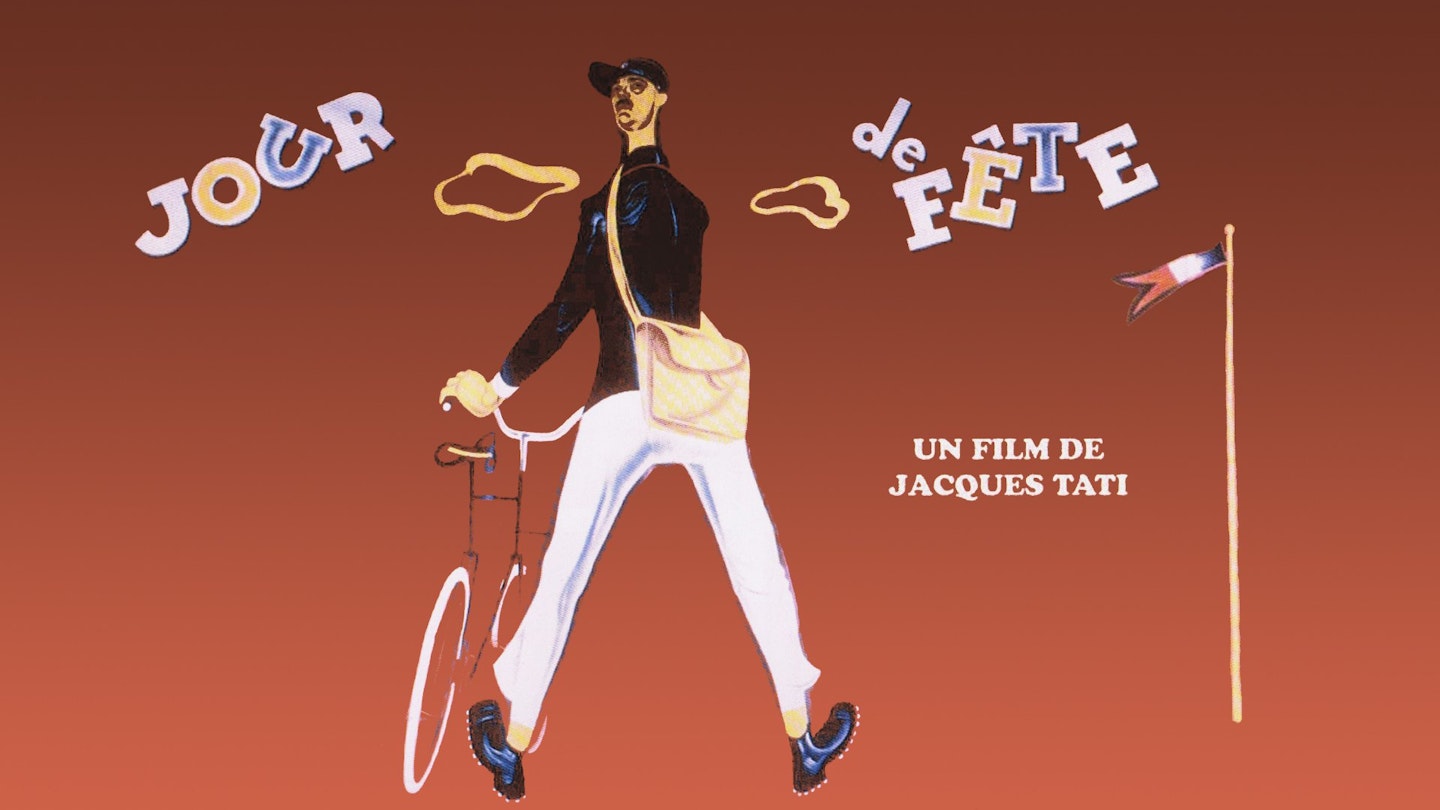Jacques Tati spent the latter part of the Second World War voluntarily exiled in the village of Sainte-Sévère-sur-Indre. He returned in 1947 to make his directorial debut with L'École des Facteurs, the hilarious short which provided the inspiration for his first feature.
Tati planned to produce France's first colour picture by shooting in Thomson-Color. However, he was warned that this experimental process was unstable and, so, he wisely opted to make a monochrome record as back-up.
The story of the lab's failure to process the Thomson stock is now part of film lore. But Tati's editor daughter, Sophie Tatischeff, and cinematographer François Ede used cutting-edge technology to develop the negative and, between 1987-94, they painstakingly pieced together Sophie's interpretation of her father's original intention. Her major amendment was the removal of the young painter who Tati had added when he re-edited and re-mixed Jour de Fête in 1964. Indeed, he had never been wholly pleased with the film and had revised it following a less than auspicious Parisian premiere.
However, there's an irony that modern techniques should have been used to create this approximation of Tati's design, as the clash between tradition and progress is one of the comedy's key themes. Indeed, Tati's mock homage to American efficiency could now be viewed as an advanced warning of the perils of globalisation, as he clearly felt caught between gratitude to the nation that had liberated France and resentment at the cultural cost being exacted by the economic aid provided by the Marshall Plan.
Establishing Tati's twin penchants for the comic counterbalance of sound and image and for allowing gags to unfold in their own the time and space, this remains a wonderfully fresh and funny film. Tati's own performance as the ungainly, but dauntlessly bouyant postman is a masterclass in silent pantomime. But the juxtaposition of this slapstick poetry with the precisely detailed pastoral idyll gives this unceasing delight an aching nostalgia to match its frantic energy.
